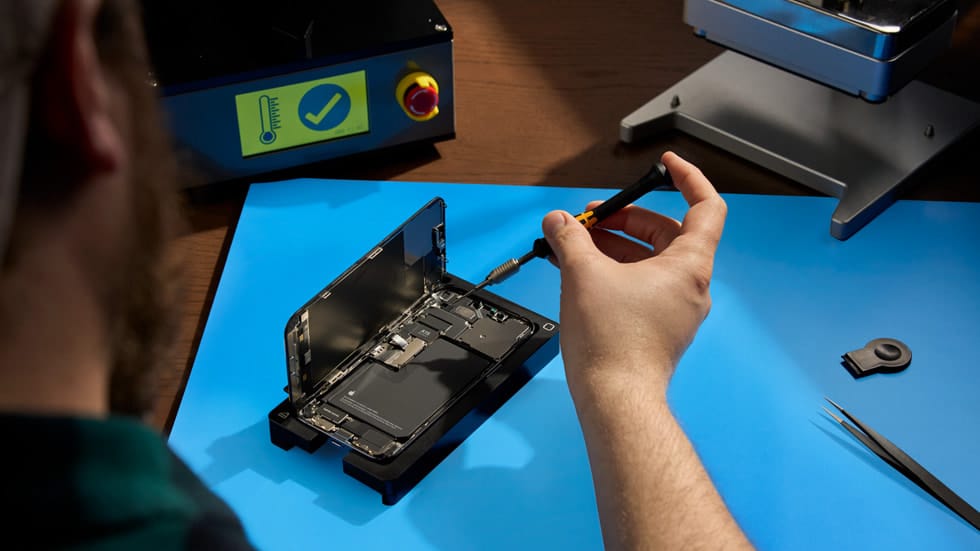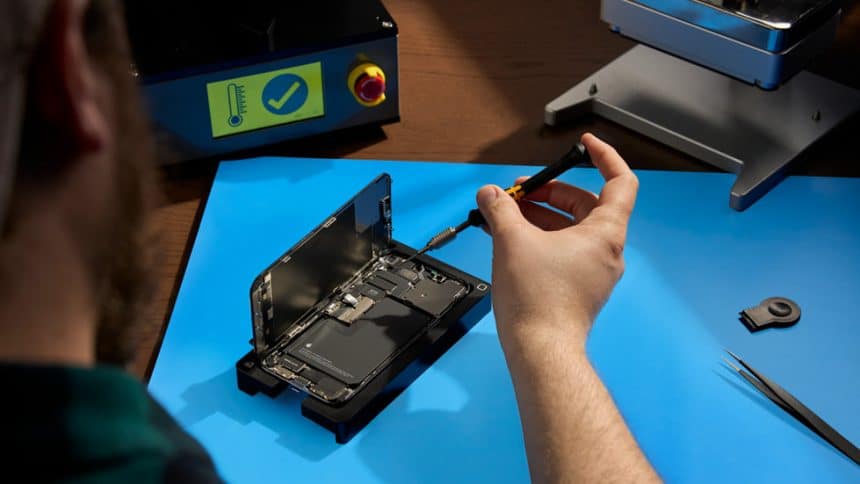On 20 June the European Union’s “ecodesign” regulation takes effect, forcing phone and tablet makers to guarantee easier repairs, longer part availability, and tougher durability standards.
Seven-year parts pledge
Under the rules, Apple must supply batteries, screens, buttons, speakers, cameras, and ports for at least seven years after each model leaves stores. These spares must be sold on an open website and shipped quickly, with manuals available to pros and hobbyists alike.

How Apple scores today
Apple’s Independent Repair Provider programme and Self-Service Repair Store already ship genuine parts and tools worldwide. Moreover, recent policy changes let technicians pair used, serialized components with iPhones—an EU requirement the company once resisted.
Areas still needing work
Despite progress, Apple must extend part listings to the full seven-year window. It also has to publish repair guides for every component, not only headline items like displays. Pricing transparency may pose another hurdle, because the regulation limits “excessive mark-ups.”
Tougher tests for toughness
The law demands devices survive 45 one-metre drops, repel dust larger than 1 mm, and shrug off water splashes. Apple does not disclose internal results, yet current iPhones carry IP68 ratings and use Gorilla Glass rated above the required Mohs 4 hardness, indicating probable compliance.
Battery life under the microscope
A key clause states phones must retain 80 percent capacity after 800 cycles and pause charging at 80 percent on user command. Apple’s iPhone 15 line already promises 1,000 cycles, and iOS offers optimized-charging settings. Still, engineers may need to tweak software so the battery stops drawing power until it drops below 95 percent, as specified.
Countdown to enforcement
With only days left, analysts expect Apple to update support pages, widen parts catalogs, and highlight compliance during upcoming marketing pushes. Failure to meet every clause could trigger EU fines, yet the company’s recent shifts suggest it will cross the line—just in time.












